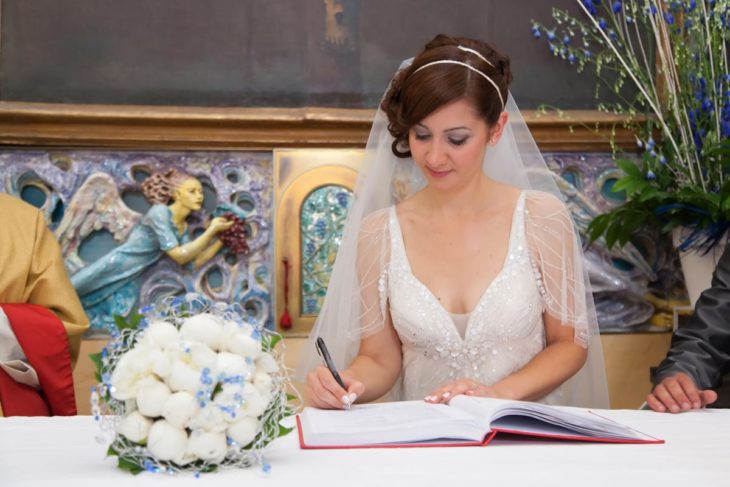Since I got engaged early last month and began planning a wedding for this summer, I’ve been thinking a lot about what it means to be hitched. As someone who already lives with her husband-to-be, I wonder just how much marriage will actually change things, whether I’ll wake up the morning after the wedding feeling any different. I’ve also been thinking a lot about what kind of wife I want to be, what it means to be a “good” wife, and how — if at all — being a “good wife” could compromise my identity or personal needs and interests.
I don’t feel a pressing desire to “prove” to myself or anyone else that I won’t change, that I won’t compromise anything, because at some point I’m sure I will. (Isn’t compromise a big part marriage, after all?) But I’m also certain that while bits of my identity are bound to shift, just as I would expect them to with any big life change and new perspective, the core of who I am will remain the same. No new name, white dress, ring on my finger or any other traditional convention is going to change that. For better or worse, I am who I am and I’m pretty solid in my identity. So when I read a column in the Guardian recently by Abigail Gliddon, a woman who claims “when a woman takes her husband’s name, she surrenders her former identity and adopts his,” I wondered how she came to have such low expectations for other women.

Source: OpinionFront
Does she really believe that the identity of every woman is so thin, so flimsy, that a name change is going to completely dissolve it? Or is she merely justifying a personal decision she’d make if she were getting married and passing judgment on any bride who’d do it differently? “I will never become a Mrs,” Gliddon writes, “and I will never take my husband’s name. If pushed, I choose Ms, but otherwise I will always be me. First name. Surname.” Unwilling to believe any sane, modern woman would choose otherwise, Gliddon writes: “It startles me that so many women of my generation never question this bizarre ritual.” Because clearly, if you’re a woman getting married and decide to take your husband’s name, it’s only because you’re incapable of critical thought, unable to question tradition and decide what’s best for you.
Over on Broadsheet recently, Tracy Clark-Flory responded to the criticism feminist blogger, Jessica Valenti, received after announcing her engagement on her site Feministing, writing: “Conservatives and liberals, misogynists and feminists—we all seem to love (to radically differing degrees) to pass judgment about brides’ choices. Changing your name? Ohhh, you’re betraying feminism. Walking down the aisle alone? Your poor father. Wearing white? You’re bowing to the patriarchy.” And now Ms. Gliddon at the Guardian joins the chorus: “As soon as a woman signs the marriage register she assumes a new identity.” As if a woman’s identity is easily reduced to nothing but her name. I don’t know about her, but I’m definitely much more than a handful of letters and a few syllables.

Source: Nainen
For the record, I plan to keep my name when I marry, not because I’m making a political statement or that I’m worried about turning into a different person if I don’t, but simply because I happen to like it a lot. In fact, all the decisions I’m making regarding my wedding and my marriage express, get this, personal choice. Some might even say they express my identity. And why not? There’s a lot of it to express.
Original by Wendy Atterberry
